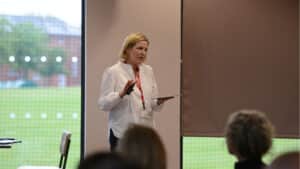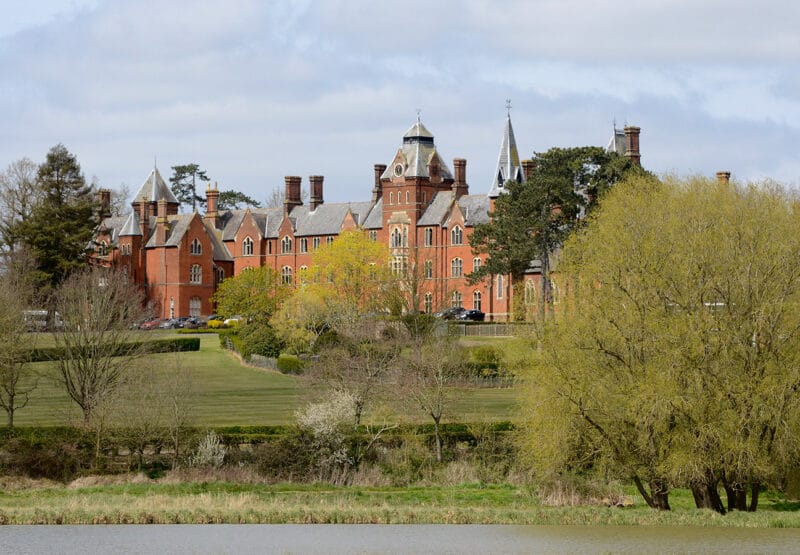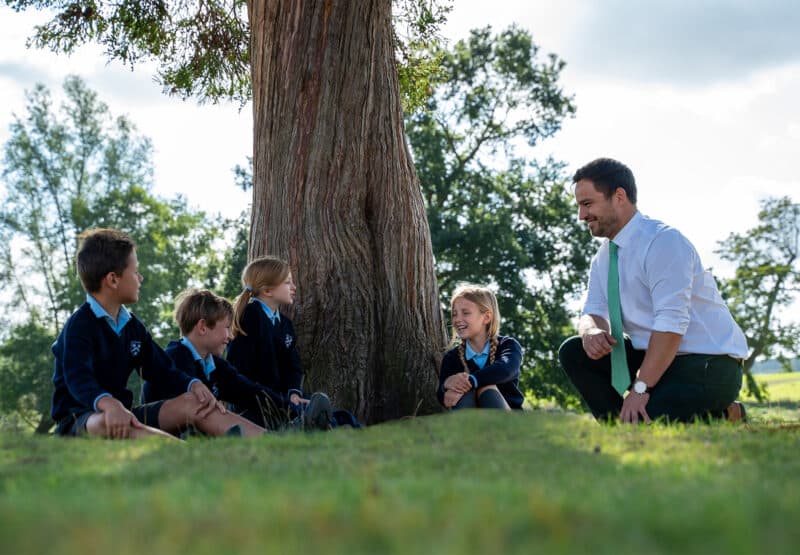Framlingham College was pleased to welcome BACP accredited therapist and founder of The Wellbeing Hub, Alicia Drummond, to the College for an inspiring talk focused on ‘Building Self-Esteem in Children and Young People’.
Parents and members of the school community were in attendance to gain valuable insight and advice on how to help children develop a robust self-esteem which is vital for safeguarding their mental wellbeing, preventing unhealthy risk-taking during adolescence and later life, and resisting peer pressure.

“Self-esteem is at the heart of us all and resilience plays a big part in supporting our confidence”, said Alicia. “When we look at the mental health stats for young people, it is worrying – the NHS digital report shows us that from 2017 to 2024 the number of 7 to 16-year-olds with a mental health disorder grew from 1-in-9 to 1-in-6, and for 17 to 19-year-olds it went from 1-in-10 to 1-in-6.
“Never has self-esteem and resilience been in such demand, and the parental relationships we have with our children is at the core of their self-esteem. About 70% of our children’s behaviour comes from ourselves as parents, so it’s very important that the way we talk to ourselves inwardly is positive and this reflects outwardly to our children.”
Highlighting theories such as the ‘Tolerance Window’ and the ‘Okay Corral’, Alicia explained how when our tolerance levels are pushed outside their limits, it activates hyper arousal which in turn, as parents, can lead to shouting, blaming, or criticising – and when we do that too often our children bear the brunt of it.
Linking this to the four parenting styles – permissive, authoritative, neglectful, authoritarian – Alicia also encouraged the audience to discuss how a parent of each style would react to their child who is struggling and how this would impact their self-esteem.
Alicia also interestingly touched on intergenerational trauma and how our experience from our own parents has a big impact on replicating behaviour when we parent our own children – often passing down negative behaviours or self-esteem issues.

“Self-esteem is all about being loved for being”, Alicia explains. “Unconditional love is the best thing you can give your child, and you give that love when it’s not attached to doing or prizes or rewards – which I think has caused a lot of young people to live in fear of failure, or only do something due to the fear of consequences.
“To help our children’s self-esteem and confidence, I encourage you all to involve children and young people in household management – such as cooking, ironing, washing, being responsible for cleaning their rooms and organising their school bag. There are not chores, these are things they need to know as teens and young adults so that you, as parents, are reassured that they can live independently and confidently. When we are confident as parent that our children can do everyday life skills, that will boost their own self believe and self-esteem.
“You should also practice healthy stress copying strategies, not only for yourselves as parents but also as an example for your children – these could be meditation, exercise, healthy eating, music and art. Everyone must have two that they do each day and demonstrate to our children that self-care is self-esteem in action.”
Further information to help parents support their children’s mental health and wellbeing can be found from Alicia, alongside a number of guests contributors, on The Wellbeing Hub, and includes weekly podcasts, live Q&A’s, parenting webinars and advice blogs.
Parents of Framlingham College pupils can access these for FREE by registering here.







